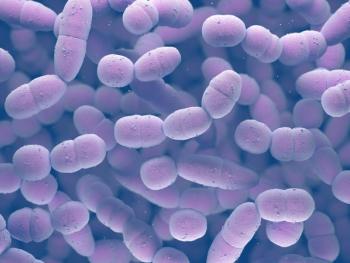
- March 2018 HPV Vaccination Supplement
- Volume 84
- Issue 3
The 9-Valent HPV Recombinant Vaccine: An Introduction
The 9-valent human papillomavirus (HPV) recombinant vaccine (Gardasil 9, Merck & Company, Inc.) is indicated for women and men aged 9 to 26 years for the prevention of certain diseases, precancerous lesions, and genital warts caused by HPV.
The 9-valent human papillomavirus (HPV) recombinant vaccine (Gardasil 9, Merck & Company, Inc.) is indicated for women and men 9 to 26 years of age for the prevention of certain diseases, precancerous lesions, and genital warts caused by HPV (Table 1).1 The exact mechanism of action of the vaccine is unknown but is thought to prevent HPV through humoral immune responses stimulated by the vaccine.1
Dosage and Administration
The 9-valent HPV vaccine is supplied as a single-dose 0.5 ml vial and 0.5 ml prefilled syringe.1 It should be refrigerated at 36° to 46° F and protected from light.1
The vaccine is administered as a 0.5 ml intramuscular injection, and the dosage schedule is based on age (Table 2).1-3 It should be shaken well before use and should not be diluted or mixed with other vaccines. Inspect the product for particulate matter and discoloration prior to administration, and do not use if these characteristics are present. If using the single-dose vial, withdraw the 0.5 ml dose using a sterile needle and syringe and administer immediately.1
The prefilled syringe package does not contain a needle. A needle must be attached by twisting in a clockwise direction until it fits securely on the syringe. The entire dose should be administered. Also of note, because the 9-valent HPV vaccine is not live, it can be administered at a separate injection site at the same time as any inactivated or live vaccine.4
Drug Interactions and Contraindications
Immunosuppressive medications such as chemotherapy and corticosteroids may reduce the efficacy of the vaccine.1 It is contraindicated in patients that have experienced hypersensitivity, including severe allergic reactions to yeast (a vaccine component), or after a previous dose.1
Warnings, Precautions, and Adverse Reactions
Patients should be monitored for signs of syncope.1 Epinephrine should be administered to patients that experience an anaphylactic reaction after receiving the vaccine.
The most common adverse effects reported with the 9-valent HPV vaccine are dizziness, injection site pain, swelling, redness, nausea, headache, and fever. Syncope has also been reported after administration. Adverse reactions should be reported to the Vaccine Adverse Event Reporting System.
Pregnancy and Lactation
There is a registry to monitor pregnancy outcomes.1 Merck can be contacted at 1-800-986-8999 to enroll.1 Limited available human data demonstrate that there is not an increased risk of major birth defects and miscarriages when the vaccine is administered during pregnancy.1 The Advisory Committee on Immunization Practices (ACIP) recommends that no intervention is needed for pregnant women who receive the vaccine inadvertently.3 The remaining doses should be delayed until after pregnancy.3 Women who are breastfeeding can receive the vaccine.4
Vaccine Recommendations and Clinical Studies
The 9-valent HPV vaccine is considered safe and effective, and 10 years of data demonstrate long-lasting protection.3 The vaccine provides about 98% protection against cervical cancer and is generally over 90% effective against other diseases, precancerous lesions, and genital warts caused by HPV.3 Routine vaccination is recommended for all adolescents at 11 to 12 years, but the series can be started at age 9.3 The ACIP provided new recommendations in 2016 for the use of a 2-dose schedule for girls and boys who initiate the vaccination series at 9 to 14 years of age.3 Evidence demonstrates that the 2-dose schedule has equivalent efficacy to the 3-dose series.3 This is also more cost effective for patients and can increase compliance. Three doses are still recommended for individuals who initiate the vaccine series at 15 through 26 years of age and for immunocompromised patients.3 The vaccine should be administered while the patient is seated or lying down to prevent syncope, and individuals should remain seated and observed for 15 minutes.
Patient Counseling
It is important to educate patients that the 9-valent HPV vaccine does not protect against other sexually transmitted infections. It is not a live vaccine and therefore cannot cause HPV. Regular cervical cancer screening and follow-up with a gynecologist are recommended. Educate parents that HPV is a very common infection and the vaccine can help to prevent cancers and other diseases. Remind patients to complete the full vaccine series. Patients with a moderate or severe acute illness with or without fever should receive the vaccine after their condition improves.4
Jennifer Gershman, PharmD, CPh is a pharmacist and Pharmacy Times contributor residing in South Florida.
References
- Gardasil 9 [prescribing information]. Whitehouse Station, NJ: Merck & Company, Inc; 2016.
- Centers for Disease Control and Prevention. Recommended immunization schedule for children and adolescents aged 18 years or younger. United States, 2018. https://www.cdc.gov/vaccines/schedules/hcp/imz/child-adolescent.html. Accessed February 18, 2018.
- Meites E, Kempe A, Markowitz LE. Use of a 2-dose schedule for human papillomavirus vaccination-updated recommendations of the Advisory Committee on Immunization Practices. MMWR Morb Mortal Wkly Rep 2016;65:1405-1408. doi: 10.15585/mmwr.mm6549a5.
- Immunization Action Coalition. Human papillomavirus (HPV). http://www.immunize.org/askexperts/experts_hpv.asp. Accessed February 18, 2018.
Articles in this issue
almost 8 years ago
The Path Ahead for the HPV Vaccinealmost 8 years ago
Making HPV Vaccination Affordable for Patientsalmost 8 years ago
Year-Round Solutions Beyond the Influenza Seasonalmost 8 years ago
Dialogue and Education: Engaging Young Adults on the HPV Vaccinealmost 8 years ago
Patient Communication Strategies for Boosting HPV Vaccination Coveragealmost 8 years ago
HPV Vaccination in Young Adults: Are We Doing Enough?Newsletter
Stay informed on drug updates, treatment guidelines, and pharmacy practice trends—subscribe to Pharmacy Times for weekly clinical insights.


























